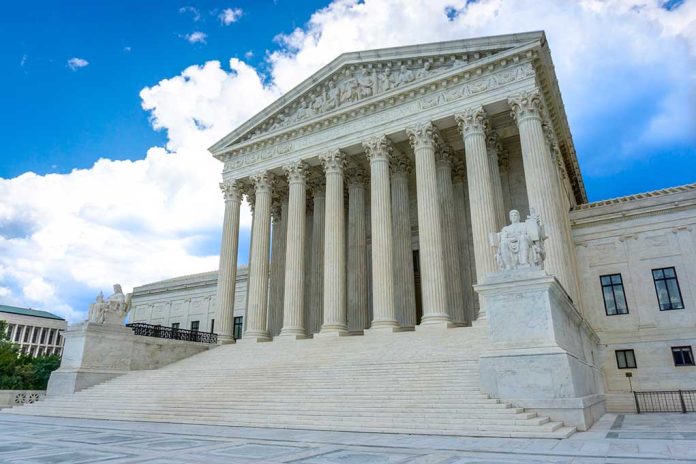
In a critical decision, the Supreme Court upheld Tennessee’s ban on public drag performances, leaving many to question the future of artistic expression in America.
Key Takeaways
- A federal judge had initially ruled Tennessee’s ban on drag performances as unconstitutional.
- The ban was part of a broader legislative effort, signed by Tennessee Governor Bill Lee, to limit drag performances in several states.
- The law was deemed vague and overreaching by U.S. District Judge Thomas Parker, appointed by former President Donald Trump.
- This verdict brings into focus the tension between safeguarding minors and upholding artistic freedoms under the First Amendment.
- GLAAD and other advocacy groups see this ruling as a fight against anti-LGBTQ measures affecting freedom of expression.
Supreme Court’s Stand on Tennessee’s Ban
Tennessee’s law banning public drag performances was upheld by the Supreme Court, which declined to review an appeal challenging this restriction. This means the verdict remains intact, reflecting a broader national debate over similar restrictions. The original legislation was signed into law by Tennessee Governor Bill Lee as part of an initiative observed in at least 15 states aimed at regulating drag performances. The legislation imposed fines and potential prison time for offenders, with harsher sentences for repeat violations. In the political climate ahead of the 2024 elections, similar bills are being introduced across the nation.
This decision raises considerable discourse about the balance of regulatory enforcement and individual liberties. Notably, U.S. District Judge Thomas Parker criticized the law’s language as being “unconstitutionally vague and substantially overbroad.” According to Parker, laws impacting the freedom of speech or expression must be narrowly and clearly defined to align with constitutional standards. His initial ruling reflected concerns on how broadly the law could be interpreted in limiting artistic displays.
Impact on Freedom of Expression
The pushback against Tennessee’s law does not conclude with the Supreme Court’s decision. The initial block by Judge Parker came after Friends of George’s, an LGBTQ theater group, contested the law, arguing that it unfairly singled out drag performances. The group maintained that the measure posed an unnecessary restriction on their ability to express gender and artistic narratives. This viewpoint aligns with many advocates for the LGBTQ community who argue that such legislation threatens the cultural contributions and freedom of expression afforded by the First Amendment.
GLAAD, a significant advocacy group in this legal battle, celebrated the fleeting federal ruling against the ban by declaring it a landmark victory for LGBTQ rights. This court decision, according to GLAAD, marked a pivotal moment in the era of increasing legislative challenges to LGBTQ freedoms nationwide. The organization and its supporters remain vigilant in ensuring these rights are not diluted by future legal interpretations.
Broader Legal and Cultural Implications
The ruling also adds to the growing discourse about how far state regulations can infringe upon creative and cultural expressions under the guise of protecting minors. Over 500 bills targeting LGBTQ content have been proposed by Republican officials, with claims of safeguarding traditional values. However, this stance clashes with those advocating for cultural progression and the unrestricted celebration of identity through the arts. Such rulings hold the potential to shape the landscape of state versus federal judicial power concerning cultural governance.
The conversation surrounding these legal outcomes touches on key ideological divides within the United States and reflects ongoing concerns about the preservation of freedoms foundational to American society. As courts continue to deliberate on these critical issues, the intersection of law, culture, and personal freedom remains a substantial point of interest for individuals and policymakers alike.
Sources:
- Federal judge rejects Tennessee drag show ban as unconstitutional
- Supreme Court declines to take up challenge to Tennessee law restricting drag shows
- Supreme Court Leaves Tenn. Drag Ban Intact | Newsmax.com













